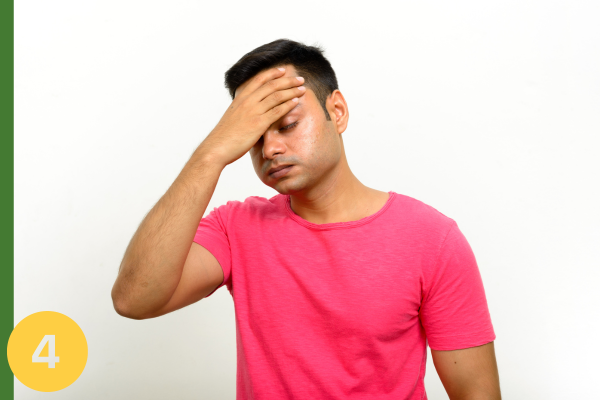5 Habits to Cultivate for a Balanced Lifestyle
Do you want to live a healthier, happier, and more fulfilling life? If so, it's time to start cultivating a balanced lifestyle. This means taking care of your physical, mental, and social health.
When you're physically healthy, you have more energy, you're better able to handle stress, and you're more likely to feel happy and fulfilled. When you're mentally healthy, you're able to think clearly, you're better able to cope with challenges, and you're more likely to have positive relationships. And when you're socially healthy, you have strong relationships with friends, family, and community members, which can provide you with support and a sense of belonging.
A balanced lifestyle is not about being perfect. It's about making choices that support your health and well-being, even when it's tough. It's about finding what works for you and making small changes that you can stick with over time.
Here are five essential habits that can help you create a balanced lifestyle:

HEALTHY DIET
Eating a healthy diet means eating plenty of fruits, vegetables, and whole grains. These foods are packed with vitamins, minerals, and fiber, which are essential for good health.
Limit processed foods, sugary drinks, and unhealthy fats. These foods are high in calories and low in nutrients, and they can contribute to weight gain, heart disease, and other health problems.
Make sure to drink plenty of water throughout the day. Water is essential for hydration and can help you feel your best.

REGULAR EXERCISE
Exercise is important for physical health, mental health, and overall well-being. It can help you maintain a healthy weight, reduce your risk of chronic diseases, and improve your mood and sleep.
Aim for at least 30 minutes of moderate-intensity exercise most days of the week. Moderate-intensity exercise means that you can talk but not sing while you're doing it.
You can break up your exercise into shorter sessions throughout the day. For example, you could walk for 10 minutes after breakfast, lunch, and dinner.

ENOUGH SLEEP
Most adults need around 7-8 hours of sleep per night. When you don't get enough sleep, you're more likely to feel tired, irritable, and have difficulty concentrating.
Create a relaxing bedtime routine to help you wind down before bed. This could include taking a warm bath, reading a book, or listening to calming music.
Avoid caffeine and alcohol before bed, as these substances can interfere with sleep.

MANAGE STRESS
Stress is a normal part of life, but too much stress can have negative health consequences. Find healthy ways to manage stress, such as exercise, relaxation techniques, or spending time with loved ones.
Exercise is a great way to relieve stress. It releases endorphins, which have mood-boosting effects.
Relaxation techniques, such as yoga, meditation, or deep breathing, can also help to calm the mind and body.
Spending time with loved ones can provide support and a sense of belonging, which can help to reduce stress.

CONNECT WITH OTHERS
Having strong social connections is important for mental and emotional well-being. Social connections can provide support, a sense of belonging, and a sense of purpose.
Make time for friends, family, and other supportive relationships. This could include spending time with loved ones in person, talking on the phone, or connecting online.
Get involved in your community. This could involve volunteering, joining a club or group, or attending community events.
These are just a few of the many habits that can help you create a balanced lifestyle. The most important thing is to find what works for you and to make small changes that you can stick with over time.
We hope this article motivates you to take the right steps towards creating a healthier and more balanced lifestyle. Remember, small changes can make a big difference over time. So what are you waiting for? Start making changes today!

